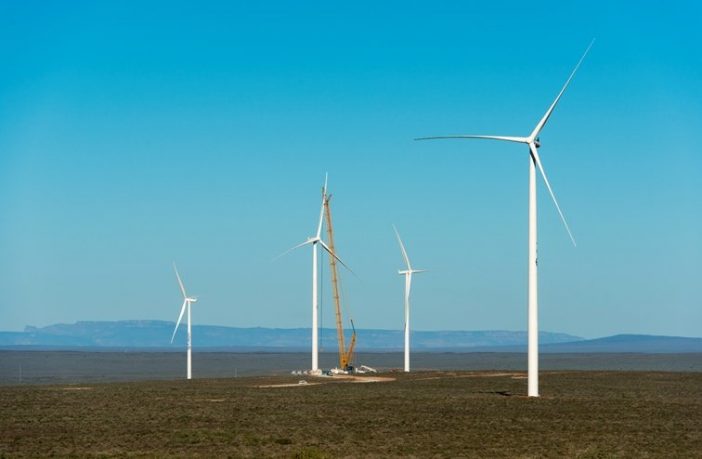- RES4Africa Foundation, in cooperation with CESI S.p.A., has released a new study : Fostering Renewable Energy (RE) within an Independent Network System scenario.
- The study was presented today during a webinar organised by the Rome-based Foundation in collaboration with Nedbank.
- The study aims to present the most emblematic international case-studies of power sector reform and renewable integration in order to support the decision-making process that is currently undergoing in South Africa.
The virtual event was moderated by Amith Singh, Head of Energy Finance at NEDBANK and saw the participation of high-level speakers from the international renewable energy sector, among others: Roberto Vigotti (Secretary General at RES4Africa Foundation), Segomoco Scheppers (Group Executive for Transmission at Eskom), Sbu Nthshalintshali (Manager Renewable Energy, City of eThekwini), Marcelo Castillo Agurto (Head of Business Development Infrastructure and Networks Division at Enel Group), Simone Pasquini (Area Manager Africa at CESI SpA), Berardo Guzzi (Head of International Relations at Terna SpA) and Caspar Herzberg(President Middle East and Africa at Schneider Electric).
South Africa’s electricity generation is reliant on coal, but efforts are ongoing to diversify the energy mix. The National Development Plan 2030 envisages the decommissioning of 35 GW (out of 42 GW currently operating) of coal-fired power capacity and to supply at least 20 GW of the additional 29 GW of electricity needed by 2030 from renewables and natural gas (6 GW of new solar PV capacity and 14 GW of new wind power capacity will be commissioned by 2030). Such amount of variable renewable generation needs to be integrated into the power system by implementing adequate actions aimed at assuring its security and reliability.
At present, South Africa’s electricity sector is dominated by Eskom, a vertically integrated public utility that operates 30 power plants with a nominal capacity of 44 GW, roughly equivalent to 86% of total capacity, divided into thermal coal (36 GW), nuclear (2GW), gas fired (2.5 GW), hydro (3.3 GW) and wind (100 MW). The public utility currently generates approximately 95% of the electricity consumed in the country, owning its transmission grid and 60% of the distribution grid, for a total of more than 6 million direct customers served. As exclusive large-scale vendor, Eskom also exercises a monopsony of power, performing the role of buyer in the main VREs promotion frameworks.
To favor an efficient and effective energy transition, the Government of South Africa is envisaging to reform Eskom, since phasing out coal while rapidly deploying RES and smart grids require a different and more open market framework. In order to support South African’s decision making process, RES4Africa’s study identifies and analyses the most emblematic global case-studies of power sector reforms, focusing on worldwide experiences of transmission unbundling, economic and tariff regulation of transmission system operators and VRE deployment. The report also provides a possible roadmap for the country’s energy transition.
“Renewables and reforms are the two crucial pillars to enable a positive energy transition” said Roberto Vigotti, RES4Africa’s Secretary General “A strategic reform of the energy system is the key to guarantee a sustainable energy mix for South Africa, improving the quality of the service and increasing the RES generation”.
Segomoco Scheppers, Group Executive for Transmission at Eskom, commented: “The support provided by RES4Africa through this research report is highly appreciated. It will serve as an important contribution to the ongoing dialogue among stakeholders regarding the timely development of adequate transmission capacity to integrate new generation capacity including significant renewable generation capacity as per the IRP2019, even as the Eskom Roadmap continues to be rolled out”.
“The local government should diversify its service delivery mandate through the integration of high shares of renewable energy penetration in their distribution network.” added Sbu Nthshalintshali, Manager Renewable Energy, City of eThekwini “This will create alternative revenue streams while continuing to support the free basic electricity (FBE) provision to the vulnerable and disadvantaged communities. The economic policy on inclusive growth by National Treasury outlines the key measures required to structurally reform the energy sector in South Africa. Economies shrink when there is no proper energy planning and that is already costing South Africa.“
“South Africa is on the cusp of a major shift in its energy industry, as the government looks to open up the electricity market.” concluded Caspar Herzberg, President Middle East and Africa at Schneider Electric “The country has an opportunity to develop its transmission system by incorporating technologies such as smart grid systems for better management of distributed energy sources such as renewables energy. Those who will benefit the most will be consumers, businesses and South Africa’s people.”
Download the full study HERE
Author: Bryan Groenendaal















